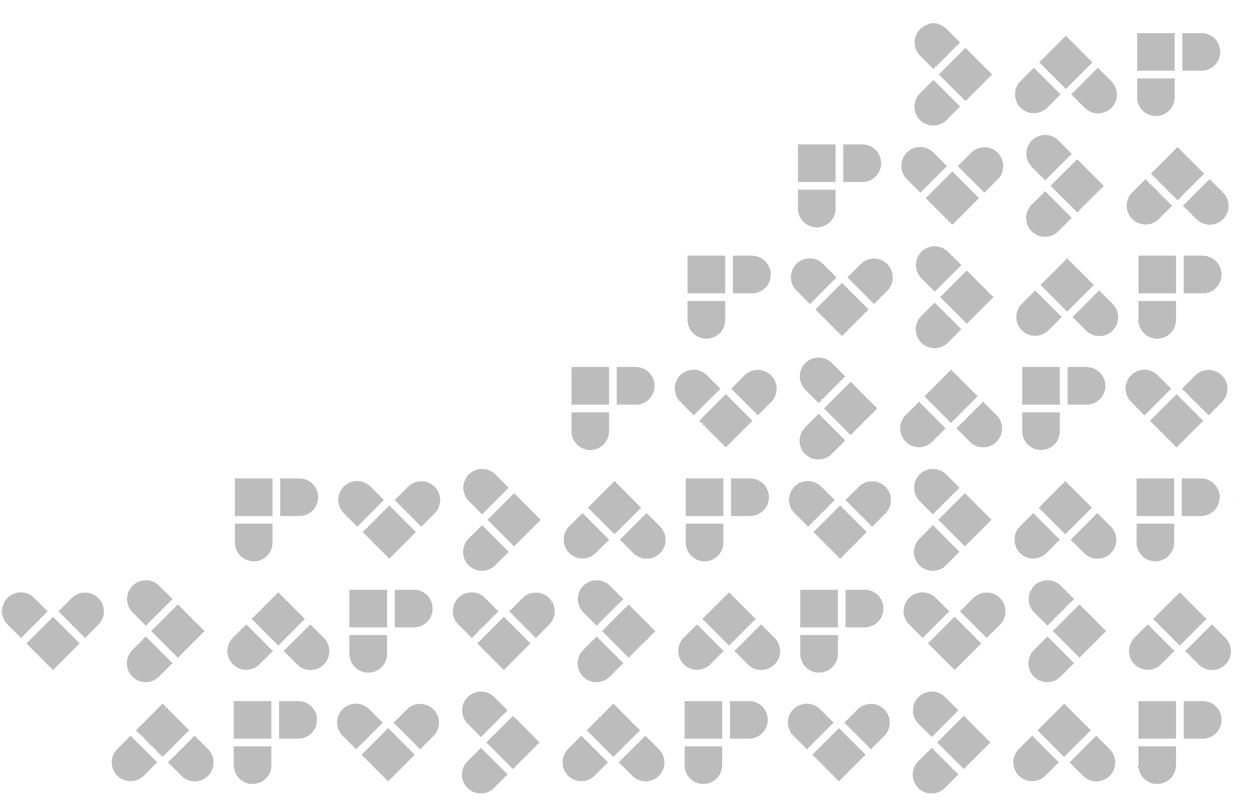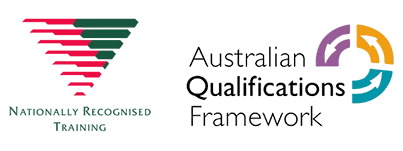Certificate III in Individual Support (Disability)



Course Overview
The CHC33021 - Certificate III in Individual Support (Disability) is a Nationally Recognised qualification that equips you with the practical skills and knowledge needed to support individuals with disabilities in community, home, and residential care environments.
If you're interested in becoming a disability support worker, personal care assistant, or in providing specialised support to help people with disabilities achieve their goals, this course offers real-world training in person-centred care. You'll learn how to empower clients to maintain independence, build daily living skills, and participate fully in their communities - all while fostering dignity, inclusion, and respect.
What You’ll Learn
This qualification provides the essential skills to work confidently and compassionately with people who live with a disability. With a strong focus on practical application, you’ll be prepared to make a meaningful difference from day one. In this course, you’ll learn to:
Deliver person-centred support tailored to people with disability – aligned with contemporary best practice across care and support services
Promote independence, inclusion and empowerment – helping clients live with dignity and actively participate in their communities
Support daily living activities and individualised care plans – preparing you to work in a variety of home, community and residential settings
Recognise and respond to diverse needs and behaviours – developing the empathy, patience and adaptability needed in real care environments
Apply legal, ethical and culturally respectful care practices – ensuring you meet current industry standards and client expectations
Communicate effectively and build strong support relationships – a core skill in establishing trust and delivering compassionate care
Work safely and follow infection control procedures – essential for ensuring safety in disability support environments
Through hands-on, industry-aligned training, you’ll graduate with the confidence and job-ready skills to work in one of Australia’s most rewarding and high-demand sectors.
Introducing the Upskilled Health and Community Services Job Portal
Dive into a world of career opportunities in healthcare, community support, and aged care with Upskilled's dedicated platform. Connect directly with leading employers who value your skills and passion for making a difference. Our streamlined platform lets you personalise your job search, explore targeted courses to boost your career readiness, and find flexible employment options that fit your lifestyle. Join the Upskilled Health and Community Services Job Portal today to start shaping a brighter future.
Career Outcomes
Possible Careers
Students who successfully complete this qualification may be able to pursue the following career outcomes.
Course Modules
To satisfy the requirements of this qualification, you'll need to complete the following units of competency.
This unit describes the skills and knowledge required to work respectfully with people from diverse social and cultural groups and situations, including Aboriginal and/or Torres Strait Islander people. This unit applies to all workers. The skills in this unit must be applied in accordance with Commonwealth and State/Territory legislation, Australian/New Zealand standards and industry codes of practice.
This unit describes the skills and knowledge required to identify and work within the legal and ethical frameworks that apply to an individual job role. This unit applies to community services and health workers who play a proactive role in identifying and meeting their legal and ethical responsibilities. The skills in this unit must be applied in accordance with Commonwealth and State/Territory legislation, Australian/New Zealand standards and industry codes of practice.
This unit describes the skills and knowledge required to communicate effectively with clients, colleagues, management and other industry providers. This unit applies to a range of health and community service contexts where workers may communicate face-to-face, in writing or using digital media and work with limited responsibility under direct or indirect supervision.
This unit describes the skills and knowledge required for a worker to participate in safe work practices to ensure their own health and safety, and that of others in work environments that involve caring directly for clients. It has a focus on maintaining safety of the worker, the people being supported and other community members. This unit applies to all workers who require knowledge of workplace health and safety (WHS) to carry out their own work, in both centre-based and home-based service provision.
This unit describes the performance outcomes, skills and knowledge required to work with basic information about healthy body systems and the impacts of ageing and disability. It includes recognising and reporting any changes in healthy bodies involving people who are ageing or living with disability. Any identified issues of concern to be reported to the supervisor or professional health staff. This unit applies to workers across a range of community services contexts. The skills in this unit must be applied in accordance with Commonwealth and State/Territory legislation, Australian standards and industry codes of practice. No occupational licensing, certification or specific legislative requirements apply to this unit at the time of publication.
This unit describes the performance outcomes, skills and knowledge required to identify signs of abuse, including suspected abuse or allegations of abuse, take appropriate action according to role and responsibilities and minimise the risk of abuse to a person. This unit applies to workers in a range of community services contexts. Work may be carried out under direct, indirect or remote supervision. The skills in this unit must be applied in accordance with Commonwealth and State/Territory legislation, Australian standards and industry codes of practice. No occupational licensing, certification or specific legislative requirements apply to this unit at the time of publication.
This unit describes the performance outcomes, skills and knowledge required to assist with supporting people with disability in community participation and social inclusion using a person-centred approach. This involves enabling people to make choices to maximise their participation in various community settings, functions and activities to enhance psychosocial wellbeing and lifestyle in accordance with the person’s needs and preferences. This unit applies to workers in varied disability services contexts. Work performed requires some discretion and judgement and may be carried out under regular direct, indirect or remote supervision. The skills in this unit must be applied in accordance with Commonwealth and State/Territory legislation, Australian standards and industry codes of practice. No occupational licensing, certification or specific legislative requirements apply to this unit at the time of publication.
This unit describes the performance outcomes, skills and knowledge required to work positively with the carer and family of people using a service based on an understanding of their support needs. This unit applies to workers across a range of community services contexts. Work may be carried out under direct, indirect or remote supervision. The skills in this unit must be applied in accordance with Commonwealth and State/Territory legislation, Australian standards and industry codes of practice. No occupational licensing, certification or specific legislative requirements apply to this unit at the time of publication.
This unit describes the skills and knowledge required to establish relationships, clarify needs, and then work collaboratively with people who are living with mental health issues. This unit applies to support workers in contexts outside the mental health sector, but who come into contact with people with mental health issues. The services and support provided are not mental health specific.
This unit describes the performance outcomes, skills and knowledge required to organise, provide and monitor personal support services for a person within the limits established by an individualised plan. The individualised plan refers to the support or service provision plan developed for the person accessing the service and may have different names in different organisations. This unit applies to workers who provide care or support under direct, indirect or remote supervision. Work is carried out in a manner which supports independence as well as the physical and emotional wellbeing of the person receiving support. The skills in this unit must be applied in accordance with Commonwealth and State/Territory legislation, Australian standards and industry codes of practice. No occupational licensing, certification or specific legislative requirements apply to this unit at the time of publication.
This unit describes the performance outcomes, skills and knowledge required to facilitate the empowerment of people receiving support, and to deliver rights-based services using a person-centred approach. It should be carried out in conjunction with individualised plans. This unit applies to workers in varied care and support contexts. The skills in this unit must be applied in accordance with Commonwealth and State/Territory legislation, Australian standards and industry codes of practice. No occupational licensing, certification or specific legislative requirements apply to this unit at the time of publication.
This unit describes the skills and knowledge required to provide individualised services in ways that support independence, as well as physical and emotional wellbeing. This unit applies to workers in a range of community services contexts who provide frontline support services within the context of an established individualised plan. The skills in this unit must be applied in accordance with Commonwealth and State/Territory legislation, Australian/New Zealand standards and industry codes of practice. No occupational licensing, certification or specific legislative requirements apply to this unit at the time of publication.
This unit describes the performance outcomes, skills and knowledge required to apply basic infection prevention and control principles in work settings including implementing standard and transmission-based precautions and responding to risks. This unit applies to individuals working in a range of industry and work setting contexts. The skills in this unit must be applied in accordance with Commonwealth and State or Territory legislation, Australian standards and industry codes of practice. No occupational licensing, certification or specific legislative requirements apply to this unit at the time of publication.
This unit describes the performance outcomes, skills and knowledge required to work effectively in a disability support work context. The unit covers meeting job requirements, complying with organisational requirements and working in a disability sector context. This unit applies to individuals who work with people with disability in a range of community services and health contexts. Work performed requires some discretion and judgement and will be carried out under regular direct or indirect supervision. The skills in this unit must be applied in accordance with Commonwealth and State/Territory legislation, Australian standards and industry codes of practice. No occupational licensing, certification or specific legislative requirements apply to this unit at the time of publication.
This unit describes the performance outcomes, skills and knowledge required to assist with supporting the ongoing skill development of a person with disability. It involves following and contributing to an established individualised plan and using a positive, strengths-based approach. This unit applies to individuals who work with people with disability in a range of community services and health contexts. Work performed requires some discretion and judgement and may be carried out under regular direct or indirect supervision. The skills in this unit must be applied in accordance with Commonwealth and State/Territory legislation, Australian standards and industry codes of practice. No occupational licensing, certification or specific legislative requirements apply to this unit at the time of publication.
Frequently Asked Questions
To become a Support Worker, you typically need a Certificate III in Individual Support (Disability) or similar qualification, along with experience or volunteering in the field.
Disability support workers in Australia earn around $20 to $35 per hour, depending on experience and location.
Disability support workers assist with daily tasks like personal care, meal preparation, and medication management. They also help individuals with disabilities access community services and advocate for their needs.
Typically, you'll need a Certificate III in Individual Support (Disability) or equivalent certification, along with a First Aid certificate and a clear criminal record check.
Disability support workers focus on assisting individuals with disabilities to achieve goals and access services, while carers may work with a broader range of individuals and may not specialise in disability care.
Responsibilities include providing personalised support, implementing care plans, advocating for clients' rights, and collaborating with healthcare professionals.
Essential skills include empathy, communication, problem-solving, teamwork, and a commitment to promoting independence and dignity.
Obtain a relevant degree in social work or disability studies and gain experience through internships or entry-level positions.
If you're looking to start a career in disability, then undertaking the CHC33021 - Certificate III in Individual Support (Disability) is a great stepping stone if you want to equip yourself with the job-ready skills in becoming a Care Worker or Disability Support Worker.
Upskilled delivers this course online and it includes work placement where you'll get the opportunity to work with a host organisation of your choice and gain some experience in the disability sector. There are also role-playing activities that can help you get your colleagues, friends or family involved, making the course fun and interactive and can be great preparation for the physical nature of the work.
The CHC33021 - Certificate III in Individual Support (Disability) will give you the training needed to carry out the typical duties of a Disability Support Worker, which may include:
- Working with diverse people
- Communicate effectively within the health or community services sector
- Providing individualised support to clients
- Facilitating empowerment of people with disability
Transferable skills are becoming more essential and in order to find career success in the community services industry, employers look favourably upon candidates that are:
- Able to work autonomously
- Able to undertake complex problem-solving
- Culturally sensitive to the needs of people with disability
- Supportive and empathetic
In disability support, individuals may work with a diverse range of age groups, including children, adolescents, adults, and the elderly, depending on the specific roles and contexts. The CHC33021 Certificate III in Individual Support (Disability) prepares you to assist individuals across various age groups within the disability sector.
Payment Options
All amounts are in AUD (RRP includes surcharge fees). Speak to our friendly Education Consultants at 1300 009 024 to learn about flexible payment plans.
*Terms & Conditions Apply. Government Funding may be available in some states. Please contact our education consultants to learn more. You can also check the Government Funding Section in FAQs.
Industry Outlook
Discover why Community Services is a vital and rewarding field, making a meaningful difference in people's lives.
Annual Employment Growth
30,200
Median Age
41
Education pathways
If you successfully complete the CHC33021 - Certificate III in Individual Support (Ageing), you may be able to pursue the following related qualifications:
Alternatively, if you're interested in Individual Support, we also offer the following courses:
Studying with Upskilled
What's Included?
By choosing Upskilled's CHC33021 Certificate III in Individual Support (Disability), you'll gain access to resources that enhance your online learning experience, making it interactive and engaging:
Benefit from expert career advice provided by our trainers as you study.
Connect directly with employers seeking your new skills
Access top vendor content like Microsoft and prepare for certifications.
Access course materials through our customised learning platform.
Get help from our dedicated Australian-based support team.
Learn from experts with decades of industry experience.
Hear from our past students

I’ve been studying with upskilled for 11 months now, just over half way through my Cert 3, Individual Support Aged Care and Disability. The support offered by Jacqui Salvage, Program Coordinator, in particular has been greatly appreciated. The online zoom meetings with Jacqui and other students has been essential for me to take part in, I’m grateful they have these at various times during the week. Support from Erica with work placement has been great too. The Upskilled Team are great at what they do and so helpful as you navigate the role plays and assessments. I would recommend upskilled for anyone seeking further education.
Once again, thanks particularly to Jacqui.

My Experience with upskilled's coordinator Mr Ronnie, is absolutely amazing, his such a great teacher and his explanation in regarding the course are very clear and very helpful. Since I started he was always there when needed help with the course. Mr Ronnie makes you understand how to reach your goal of understanding of each session and the progress is very successful. Keep up with the good work Ronnie, and i recommend Upskilled's and Ronnie to every student and do not hesitate to contact all staff there as there a very grateful and will attend helping you straight away. One more think, I wouldn't be able to do this with out you (Ronnie) helping and supporting me, overall his fantastic. I look forward to the next meeting.

This course was amazing, I certainly learnt a fair bit. Jacqui and Travis were absolutely amazing and if it were not for Jacqui hold the role play sessions I don't think I would of ever finished.
Jacqui keep up you amazing work and I will miss catching up.
Our Trainers
Upskilled Community Service trainers are industry professionals with extensive experience and expertise, dedicated to providing practical, hands-on learning. They are committed to helping students develop the skills to succeed in the impactful and evolving community services industry.
How to enrol
A friendly Education Consultant will be in touch to answer all your questions.
Include your details, proof of previous learning, address verification, and preferred payment option to finalise your enrolment.
We will invite you to an online orientation session and you can get started on your course.
What you need to know
Entry Requirements
There are no formal entry requirements for this course. To make sure you get the most out of training with us, the following enrolment process applies:
- Once you have inquired, one of our friendly Education Consultants will contact you to ensure you have the right pre-existing knowledge and skills to achieve your chosen qualification.
- A short language, literacy and numeracy assessment will need to be completed upon enrolment.
Recommended Skills and Resources:
- Have the ability to read and write in English and display numeracy skills up to a minimum level of Year 10.
- Have access to a modern computer with high-speed internet.
- Have access to a device with audio/video recording and playback capabilities.
- Have basic computing skills, including the ability to make and upload short videos.
Self-Paced Learning and Course Duration
Upskilled's flexible, self-paced courses let you balance personal and work schedules. With a training plan to keep you on track, most students complete the course in 12-18 months, but motivated learners can finish faster. Speak with an Education Consultant to discuss your study and completion goals.
Assessment
This course will have you undertake summative and formative assessments, write reports and/or create a portfolio, and participate in role-playing scenarios. You'll also be working on a variety of projects that require your own research as well as answering various written/oral questions that apply the theory you learn into practice.
Work Placement
For the CHC33021 Certificate III in Individual Support (Disability), the work placement requirements are as follows:
If you are currently working in the disability industry you are required to undertake work placement during a period of at least 120 hours of direct support work in at least one aged care, home and community, disability or community service organisation, undertaking activities specified for CHCCCS040 - Support independence and wellbeing.
If you are not currently working in the disability industry you are required to undertake an additional ten (10) hours work placement in addition to the 120 hours, to provide the opportunity to practice the skills that are required in the disability industry.
Be sure to check out our Industry Partners if you need further assistance in sourcing a host organisation for work placement.
Recognition of Prior Learning / Credit Transfer
You may be eligible for Recognition of Prior Learning (RPL) or Credit Transfer (CT) with supporting evidence of prior education or work experience. This can reduce your study load or course duration. Speak with your Education Consultant before enrolment for details, or download the application from MyUpskilled after enrolment. A trainer will assess your eligibility.
Role-Playing and Interactive Learning Activities
This course includes optional Interactive Learning Activities to enhance practical experience, led by specialist trainers. These activities allow you to collaborate with other students, share ideas, and engage in group exercises. Benefits include finding study buddies, participating in online classrooms, and engaging in assessment-related activities to improve your knowledge and skills.
Role-playing is a key component, helping you:
- Improve decision-making and communication skills, essential in health and community services.
- Prepare for work placement by simulating real-world scenarios.
- Become "work-ready" by practising hands-on roles, particularly in disability and aged care sectors. This interactive approach offers practical experience and helps build the skills needed for the industry.
Dedicated Community Service Trainers
Upskilled's community services trainers bring comprehensive skills and industry experience to prepare you for a rewarding career. They approach training with empathy, compassion, and openness, helping you develop job-ready skills. Support includes recorded assessment walkthroughs, academic support sessions, additional resources, professional development opportunities, peer support, practical practice sessions via Zoom, and online recorded training.
Requirements for work placement
This qualification will have you undertake work placement at a nominated host organisation approved by Upskilled.
Work placement has been specifically designed to help prepare you for potential career outcomes, giving you the opportunity to further implement and gain practical skills and valuable industry insights through a real-life workplace.
Your work placement will commence once you have completed most of the theory components of your course.
Here are some key requirements you should be aware of for the CHC33021 - Certificate III in Individual Support (Disability):
- If you are currently working in the disability industry you are required to undertake work placement during a period of at least 120 hours of direct support work in at least one aged care, home and community, disability or community service organisation, undertaking activities specified for CHCCCS040 - Support independence and wellbeing.
- If you are not currently working in the disability industry you are required to undertake an additional ten (10) hours work placement in addition to the 120 hours, to provide the opportunity to practice the skills that are required in the disability industry.
- It is your responsibility to source a suitable host organisation for work placement. Please note that this can take up to several weeks, so it is recommended to allocate sufficient time when sourcing host suitable organisations.
- If you are unable to locate a host organisation, Upskilled's Work Placement Officer can assist you in finding one. Please note that it is required to provide Upskilled with a list of host organisations who have declined your requests for work placement via MyUpskilled.
- Once you have successfully secured work placement with a host organisation, you will need to complete the Work Placement Agreement Form and submit via MyUpskilled. Please note that Upskilled must approve the Work Placement Agreement before you start your work placement.
When am I eligible to commence work placement?
You will be eligible to commence work placement if you have met the following requirements:
- Submitted the relevant approved Clearance Checks
- Unlocked the Work Placement Module via MyUpskilled
- Received approval from Upskilled for your submission of the Work Placement Agreement Form
What happens if I'm already working in the industry?
If you are currently employed in the industry relevant to your qualification, you may be able to complete your work placement assessment requirements within your own workplace and may not need to source for a suitable host organisation.
You will need to submit a Work Placement Agreement Form via MyUpskilled with the details of your employer and Workplace Supervisor. Please note that Upskilled must approve the Work Placement Agreement Form before you commence your work placement.
What clearance checks and documentation do I need for work placement?
Requirements vary from state-to-state. Please see below the required documentation and clearance checks needed by Upskilled and host organisations.
If you live in NSW, VIC, QLD, SA, NT and WA, you will need:
- Working with Children Check
- National Police Check
- Cover Letter
- Curriculum Vitae
If you live in ACT and TAS, you will need:
- Working with Vulnerable People Check
- National Police Check
- Cover Letter
- Curriculum Vitae
Fees may apply when obtaining some of the clearance checks. It is a mandatory requirement that you apply for the relevant checks and submit your approved checks via MyUpskilled within the first 2 months of your course start date.
You will also need to supply your cover letter and curriculum vitae if you require assistance from Upskilled’s Work Placement Officer.
Upskilled reserves the right to transfer you to another course which work placement is not a mandatory requirement or cancel your enrolment if you have not obtained and submitted the required clearance checks.
How will I be assessed?
An Upskilled Assessor will liaise with your host organisation's Workplace Supervisor to review and validate your practical skill ability. For certain tasks, you will need to demonstrate your skills through video recordings and when necessary, through simulated activities which will be assessed by your Upskilled Assessor.
Please note that to successfully complete the work placement component of this qualification, you will need to be reasonably fit to undertake a variety of tasks and activities that may involve manual lifting, kneeling on the floor and other physical activities.
Upskill to stay ahead of the curve.
Speak with an Upskilled Education Consultant to gain insightful guidance on identifying the ideal course for your career path and future aspirations.



